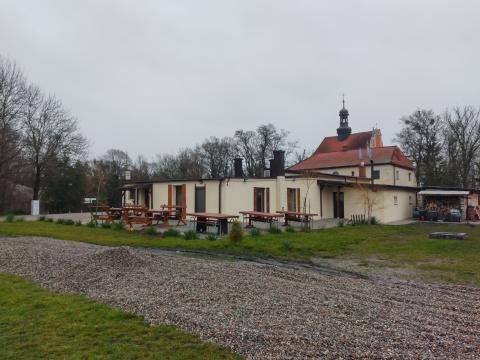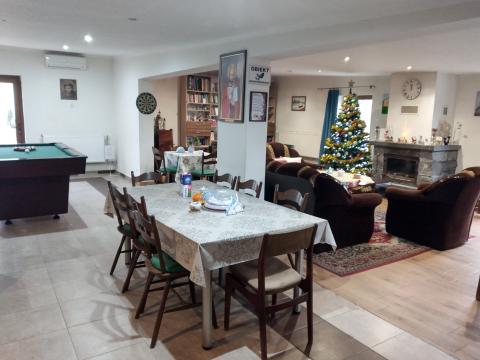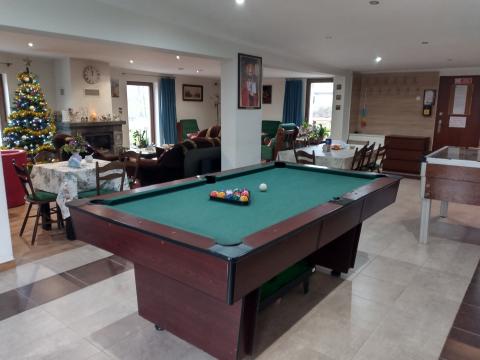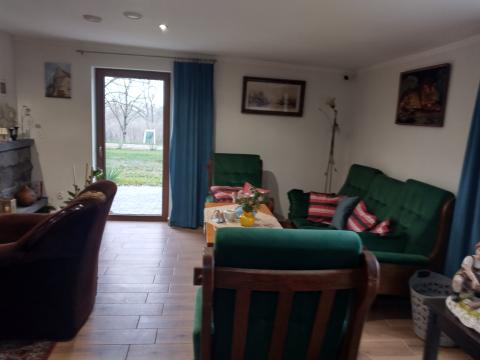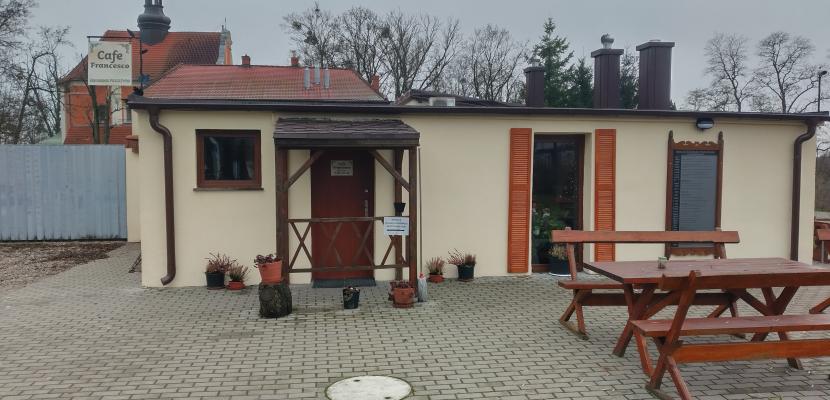
Cafe Francesco- A Space for Meetings and Dialogue

About this good practice
Context and Challenges
Cafe Francesco was initiated by Father Leon Bartczak in response to a growing need for spaces that encourage dialogue and social interaction beyond traditional religious settings. Located on Kalwaria Hill in Pakość, the initiative aimed to engage diverse groups, including youth, pilgrims, and locals, while addressing the town’s lack of community spaces.
Implementation and Objectives
The project repurposed unused catechetical rooms and utility spaces to create a multifunctional venue. It offers various amenities, including:
• A café serving coffee and tea.
• Library and music facilities, including a piano and guitars.
• Dedicated sports areas for recreational activities.
• A conference room for events and gatherings.
The café operates on donations and volunteer support, promoting a sense of community ownership. Its primary goal is to foster inclusivity and mutual respect, creating an environment where everyone feels welcome.
Stakeholders and Beneficiaries
Key stakeholders include the Parish of the Crucified Christ and Our Lady of Sorrows, local residents, tourists, and volunteers. Beneficiaries range from youth seeking a safe social space to tourists visiting the historical Kalwaria of Pakość.
Resources needed
• Financial investment: PLN 40,000 raised through donations.
• Volunteer support for construction and ongoing operations.
• Donated materials and equipment (cafeteria, conference room, sports area, outdoor facilities).
Coordinators manage activities funded by voluntary donations.
Evidence of success
Cafe Francesco is a vital community hub, welcoming 20–30 visitors daily and more during events like concerts and cultural gatherings. It offers diverse activities, fostering intergenerational connections. Located on Kalwaria Hill, it also serves pilgrims and tourists. Sustained by donations and volunteers, it has gained local recognition and inspired similar initiatives, strengthening community pride and revitalizing Pakość's cultural life.
Potential for learning or transfer
The project demonstrates how unused buildings can be revitalized into spaces that meet local needs. Its simplicity and adaptability make it a replicable model for rural areas and small towns across Europe. The practice emphasizes:
• Low-cost implementation through donations and volunteerism.
• Flexibility in addressing diverse community needs.
• Opportunities for fostering social inclusion and strengthening local identity.
Other regions could replicate this approach to transform underutilized spaces into hubs for community and cultural activities, particularly in areas lacking similar infrastructure. By adopting this best practice, parishes, communities, or organizations can revitalize local areas and create inclusive spaces that foster connection, integration, and mutual support. The initiative demonstrates that even small investments, combined with collaboration and shared effort, can result in significant and lasting social impact.
Further information
Cafe Francesco- A Space for Meetings and Dialogue
Images
Website
Good practice owner
You can contact the good practice owner below for more detailed information.
PARAFIA RZYMSKO – KATOLICKA P.W. PANA JEZUSA UKRZYŻOWANEGO I MATKI BOŻEJ BOLESNEJ


